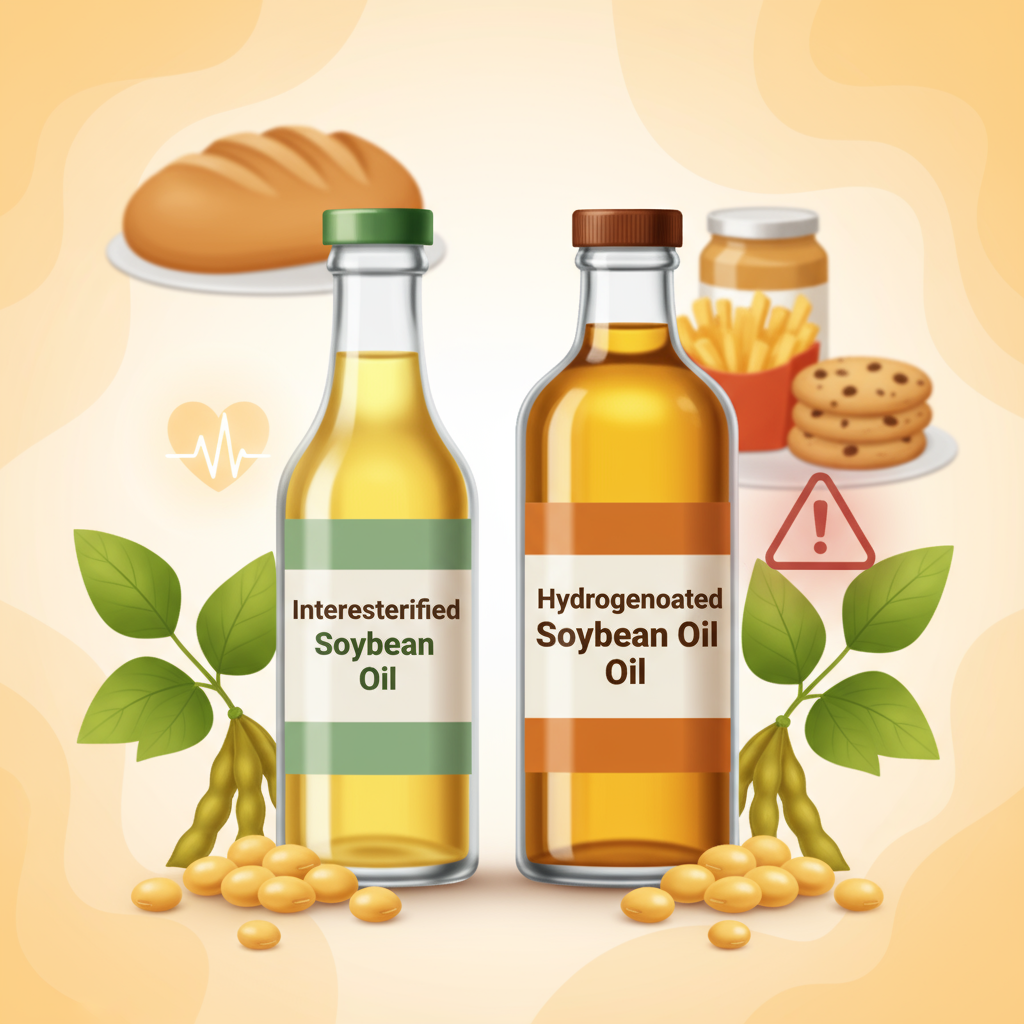
Is Soybean Oil Soy? Understanding the Connection
TL;DR
Soybean oil is indeed derived from soybeans, which are legumes. While soybean oil is commonly used in cooking and food production, it is important to note that highly refined soybean oil typically does not trigger allergies in individuals sensitive to soy proteins. However, less refined forms of soybean oil, such as cold-pressed or expeller-pressed oils, may contain soy proteins and should be avoided by those with soy allergies. This article explores the nature of soybean oil, its uses, and its implications for individuals with soy allergies.
Soybean oil is one of the most widely consumed cooking oils globally, extracted from the seeds of the soybean plant (Glycine max). As a vegetable oil, it plays a significant role in various culinary applications, from frying to baking. However, a common question arises: Is soybean oil soy? This article aims to clarify the relationship between soybean oil and soy, particularly for those with soy allergies or sensitivities.
Soybean oil is a vegetable oil extracted from soybeans. The extraction process typically involves cracking the soybeans, adjusting their moisture content, heating them, rolling them into flakes, and then using a solvent (usually hexane) to extract the oil. After extraction, the oil is refined and may be hydrogenated for various culinary and industrial applications (Wikipedia).
Soybean oil is rich in polyunsaturated fats, particularly omega-6 fatty acids, and contains a moderate amount of monounsaturated fats. It is low in saturated fats, making it a heart-healthy option when used in moderation (Soy Connection). In addition to its culinary uses, soybean oil is also a source of vitamin E, an antioxidant important for overall health.
Soy allergies are a common food allergy, particularly among children. They can be classified into two types:
Highly refined soybean oil generally does not contain significant amounts of soy protein, which means it is often considered safe for individuals with soy allergies. The Food Allergen Labeling and Consumer Protection Act (FALCPA) does not require highly refined soybean oil to be labeled as an allergen (Johns Hopkins Medicine). However, less refined oils, such as cold-pressed or expeller-pressed soybean oil, may still contain soy proteins and should be avoided by those with soy allergies.
For individuals with soy allergies, it is crucial to:
In summary, soybean oil is derived from soybeans and is a popular cooking oil with various health benefits. While highly refined soybean oil is typically safe for individuals with soy allergies, it is essential to be cautious with less refined oils that may still contain allergenic proteins. Understanding the nuances of soybean oil can help those with soy allergies make informed dietary choices while still enjoying the benefits of this versatile oil.
Soybean oil is a vegetable oil extracted from the seeds of the soybean plant (Glycine max). The extraction process involves cracking the soybeans, adjusting moisture, heating, rolling into flakes, and using a solvent like hexane to extract the oil.
Highly refined soybean oil is generally safe for individuals with soy allergies, as it does not contain significant amounts of soy protein. However, less refined oils, such as cold-pressed or expeller-pressed soybean oil, may contain soy proteins and should be avoided.
Always read ingredient labels for mentions of soybean oil or soy. Look for phrases like "contains soy" or "soy lecithin." It’s important to be cautious, especially with gourmet or cold-pressed oils that may still have allergenic proteins.
Individuals with soy allergies should consult healthcare providers to discuss dietary options. It's essential to read labels carefully and avoid less refined soybean oils that could trigger allergic reactions.

Interesterified Soybean Oil vs. Hydrogenated Soybean Oil: What You Need to Know
TL;DR Interesterified soybean oil and hydrogenated soybean oil are two types of fats used in food production. Interesterification involves rearranging fatty acids in triglycerides to modify their properties without creating trans ...

Can You Fry a Turkey in Soybean Oil? A Complete Guide
TL;DR Yes, you can fry a turkey in soybean oil, which has a smoke point of 450°F, making it suitable for deep frying. While peanut oil is often recommended for its flavor and high smoke point, soybean oil is a viable alternative. ...

How is Soybean Oil Processed? A Comprehensive Guide
TL;DR Soybean oil, a versatile and widely used cooking oil, is processed through a three-step method: cleaning, dehulling, and oil extraction. The extraction can be done via mechanical pressing or solvent extraction, often using h...

How Much Soybean Oil is in Mayonnaise?
TL;DR Mayonnaise typically contains soybean oil as a primary ingredient, especially in commercial brands. Homemade mayonnaise can be made with various oils, including healthier alternatives like avocado oil or olive oil. Understan...
Ready to source an ingredient?
Whether you’re struggling to find the perfect ingredient, racing against the clock, or simply don’t have the bandwidth to manage sourcing — we’ve got your back.
Get a Free Sourcing AuditSavings is BIG but the relationship value is MASSIVE! Glad we met when we did. Looking forward to building this partnership with you and David.
Yohan, here to say you’re one of my favorite suppliers. Aside from your high quality ingredients, you’re so great to work with. Thanks for all the help you’ve given us this year.
Working with Global Savors and Yohan has been very smooth when sourcing ingredients. They offer a great selection and and cost savings! Yohan has been awesome to work with and we look forward to continuing business together.






Global Savors is your trusted partner for seamless ingredient sourcing, offering end-to-end solutions that streamline procurement, simplify logistics, and elevate your supply chain efficiency.
View More News
© 2026 Copyrights by Global Savors. All Rights Reserved

